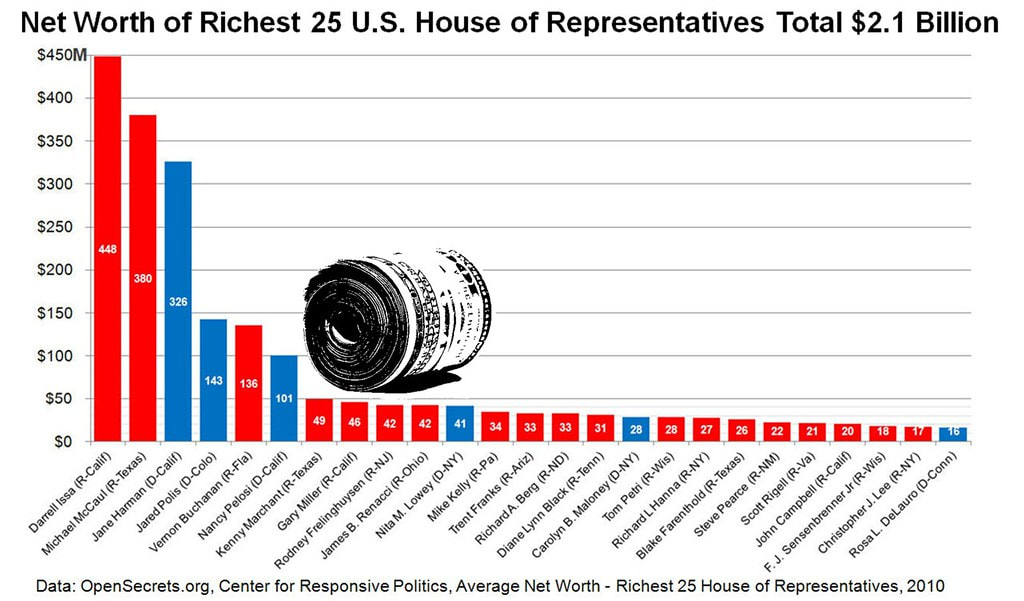|
Hi Heather,
My name’s Edna. I was wondering if you could talk about what net worth is? Why it matters and how I can improve my net worth? Thanks.
Thanks for this question Edna.
The net worth of a person is the value of what they own (these are their assets) minus the value of what they owe others (these are their liabilities). Now, most people don’t sit around calculating their net worth for the simple reason that most people don’t tend to think about their money situation but the calculation is very simple. I recommend you use a spread sheet when you do your calculation but you can also use a pen and paper. The only problem with pen and paper is that all the addition and subtraction is more tedious. Starting with the asset side, list down:
Personally, I don’t include things that fall in value like cars and computers but you can add them to the list as well especially if you own very expensive equipment that holds its value even when sold as second hand. I also don’t include personal possessions like books and clothing because I see them as being very transient and I would suggest you don’t bother with those type of thing either. Once you have listed everything that you own, find out what its value is and sum it up, this is your TOTAL ASSET VALUE. Then moving on to the liabilities side, list down: Your home mortgage Each of your buy-to-let mortgages All personal loans – from banks or stores All credit cards and store cards Money that you owe to friends and family Once you have listed everything that you owe, find out what the balance owed is and sum up all your liabilities, this is your TOTAL LIABILITY VALUE. To get your net worth subtract your total liability value from your total asset value, and voila! You have your net worth. For some people this value will be positive, for others it will be negative because the value of their debts exceeds the value of their assets. A negative value doesn’t mean you’ve been bad with money, it could just mean you’re young, have student debt and haven’t had a chance to build wealth, assets and earnings to pay off the student debt. A negative value also doesn’t mean you’re suffering. In fact, a zero net worth could be worse than a negative net worth. Lots of people in developing countries have no assets and no debts but they may be living a very difficult life without basics like enough food. In developed countries, access to cheap credit means people can live an amazing and lavish life although in reality this is sustained by debt. As long as the person earns enough to pay their interest every month this can go on for very long periods of time. And, the reality is, some people aren’t scared of debt, it doesn’t stress them out at all; what would stress then out is if they lost their job, or worse, reached retirement in this dire financial situation and found themselves pursued by people they owed money and possibly made homeless.
Why can knowing your net worth be valuable to you?
Because you can now track it, set a goal for it and improve it. If you have a negative net worth then you might want to aggressively tackle paying debts off. As you get rid of debts you’d also be getting rid of interest payments and would therefore have more disposable income to save and invest. Personally, I didn’t start intentionally tracking my net worth until I was 35 but I have always avoided debt, saved and invested from the very first year I worked so it wasn’t a trigger for me to be sensible but it definitely drove me to do better. Something weird really happens when you know your net worth, you become motivated to improve it and it makes it slightly easier to avoid excessive spending. How often should you track your net worth? I’d say once or twice a year is enough. Personally I refresh my asset and liability values on 30 September and 31 March – 31 March is ideal because it’s the end of the tax year and as I wanted equally spaced values, the second date became 30 September by default. When I track my net worth, I don’t regularly change the value of properties because it can distort the net worth calculation by inflating supposed increases in property value. If you plan on selling a property then you might be interested in updating the value but other than that, I’d just leave it. I also don’t update the value of defined benefit plans (aka final salary scheme or workplace pensions) because their value paper value can bear no relation to your ability to spend them. What is better is to get a general idea of what your fixed pension payment is likely to be based on the number of years you plan to stay in the job and keep this in mind as cash flow that you can expect at retirement. Also, ignore the state pension. You have no idea what the format of state pension will be when you get to retirement age unless you’re retiring in the next 10 or so years. I’d also just keep the number in mind. What does improving your net worth involve? To improve your net worth you either need to increase the value of assets or reduce the value of liabilities. Every time you reduce or clear a debt, you improve your net worth. Even if you aren’t saving but are focused on clearing personal loans and credit cards, you are improving your net worth. If you aren’t saving, or paying off debts but you own your own home and have a repayment mortgage on it, the act of paying your mortgage off means you are increasing your net worth. What’s your goal? Is it just to increase your net worth ? Or do you have a more specific goal, like increasing the value of assets in a specific area but not another, e.g. at a given point you might want more property and less shares or the other way round. Or is you ‘net worth’ goal more like mine? While some people will focus on increasing the gap between their assets and liabilities and don’t mind getting to retirement with debts. My personal goals is have the liability side of my balance sheet equal to zero by my effective retirement date of 50. At that point, I don’t plan to carry any liabilities. I will probably still want to work after that date but we will own our home and any rental properties outright and we’ll maintain our current no debt lifestyle. If you’re wondering how wealthy you are relative to other people in Britain I have some interesting data for you that I found on a BBC article dated July 2019: Apparently, wealth of £105,000 per adult would put your family in the top half of the population. By contrast, debt and a lack of property and pension wealth means the bottom 10% of families have less than £3 per adult. This says two things about wealth to me:
For the UK:
These statistics ignore age but we all know that wealth accumulation is a slow boring process so wealth levels tend to increase as people get older. So, it’s no surprise that 60-somethings (those born in the 50s) are the wealthiest age group, with average wealth equivalent to £332,000 per adult. Many 60-somethings are approaching the end of a career and have had time to accumulate savings, pensions and property.
Inheritance is going to be a big source of wealth going forward but again, property ownership matters a lot here. According to the BBC article which was itself quoting the Resolution Foundation, “millennials - the generation currently aged 19-38 - are set for an inheritance boom in the future. But it's a long way off, with the average millennial not expected to receive it until they reach 61.” It adds that, “Nearly half of millennials who don't yet own homes have parents with no property wealth, meaning they are unlikely to receive a significant inheritance. By contrast, those with home-owning parents are three times as likely to own a home by the age of 30.” Guys, if you hearing anything from this it’s beg, borrow, steal, scrimp and save and get yourselves on the property ladder to build a security blanket for yourselves – no pressure! Also, don’t shoot the messenger. Said BBC article had a large number of cynical comments under it – and a few helpful ones. How about wealth by race?!! … It was hard to find UK wealth data sorted by race but I did find home ownership stats: Overall, 63% of households in England were homeowners in 2016/18 (around 14.6 million households) Top three home owning groups in 2016 to 2018 were:
The bottom home owning groups were:
My group ‘Mixed white/black African were not much better at 34% All interesting things. So, in summary, if you want to increase your net worth without putting excessive effort into it, I would suggest as follows:
I hope this helps! Heather x Have a money question for me?
If you have any personal finance questions send them to [ME] – I will answer whatever piques my fancy via a blog post.
0 Comments
Leave a Reply. |
Heather on WealthI enjoy helping people think through their personal finances and blog about that here. Join my personal finance community at The Money Spot™. Categories
All
Archives
September 2023
|
Heather Katsonga-Woodward, a massive personal finance fanatic.
** All views expressed are my own and not those of any employer, past or present. ** Please get professional advice before re-arranging your personal finances.


 RSS Feed
RSS Feed


